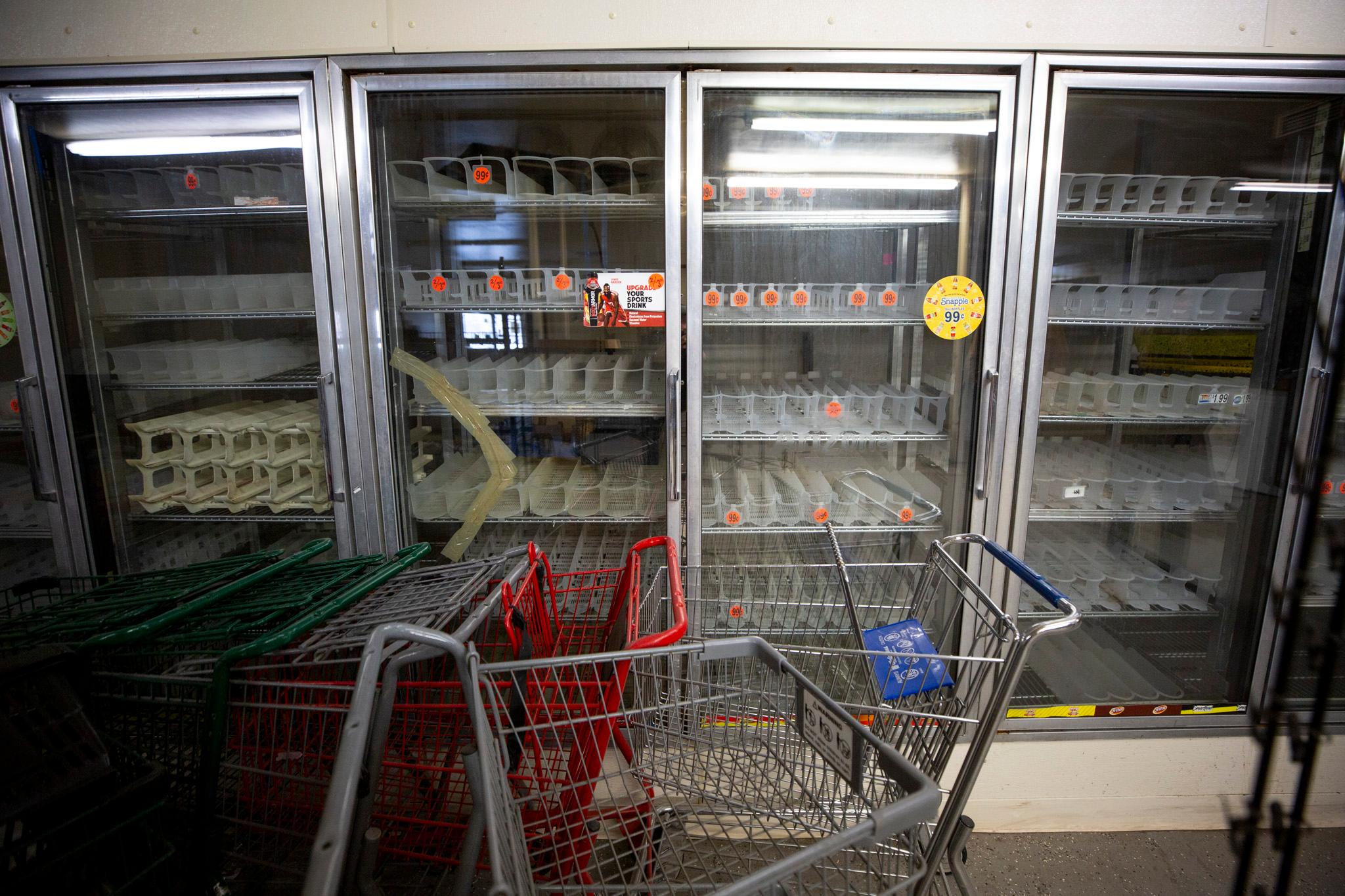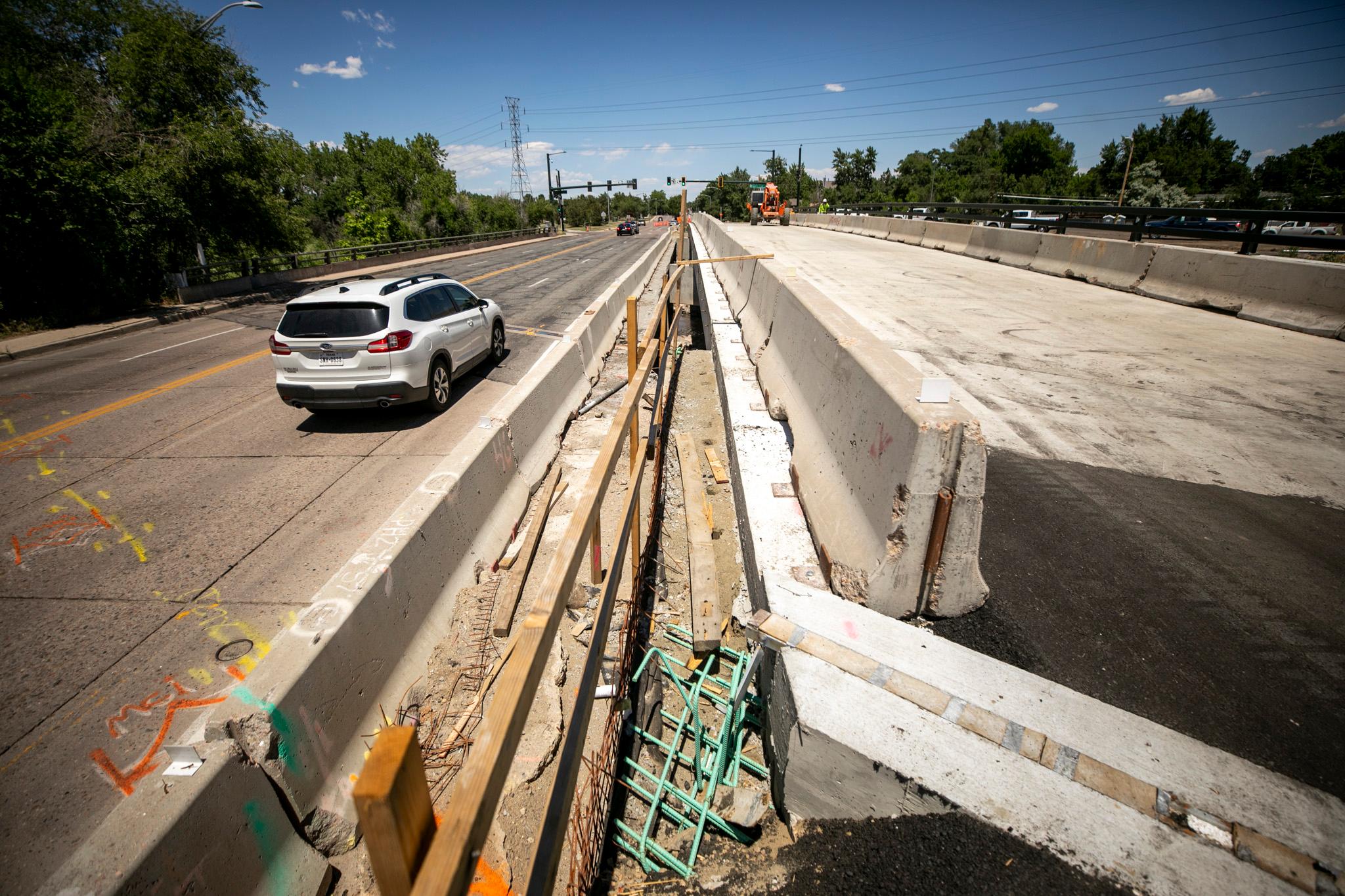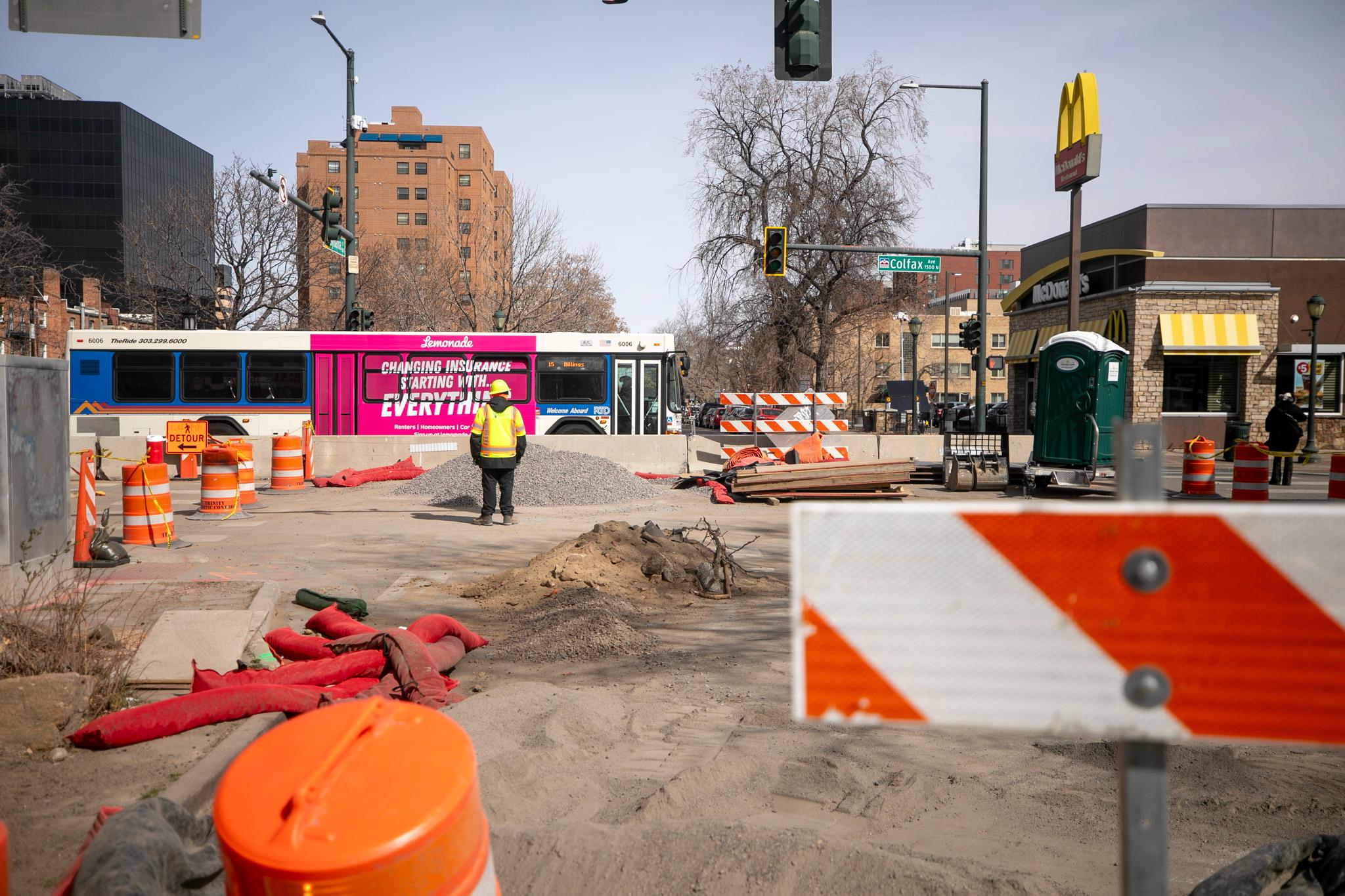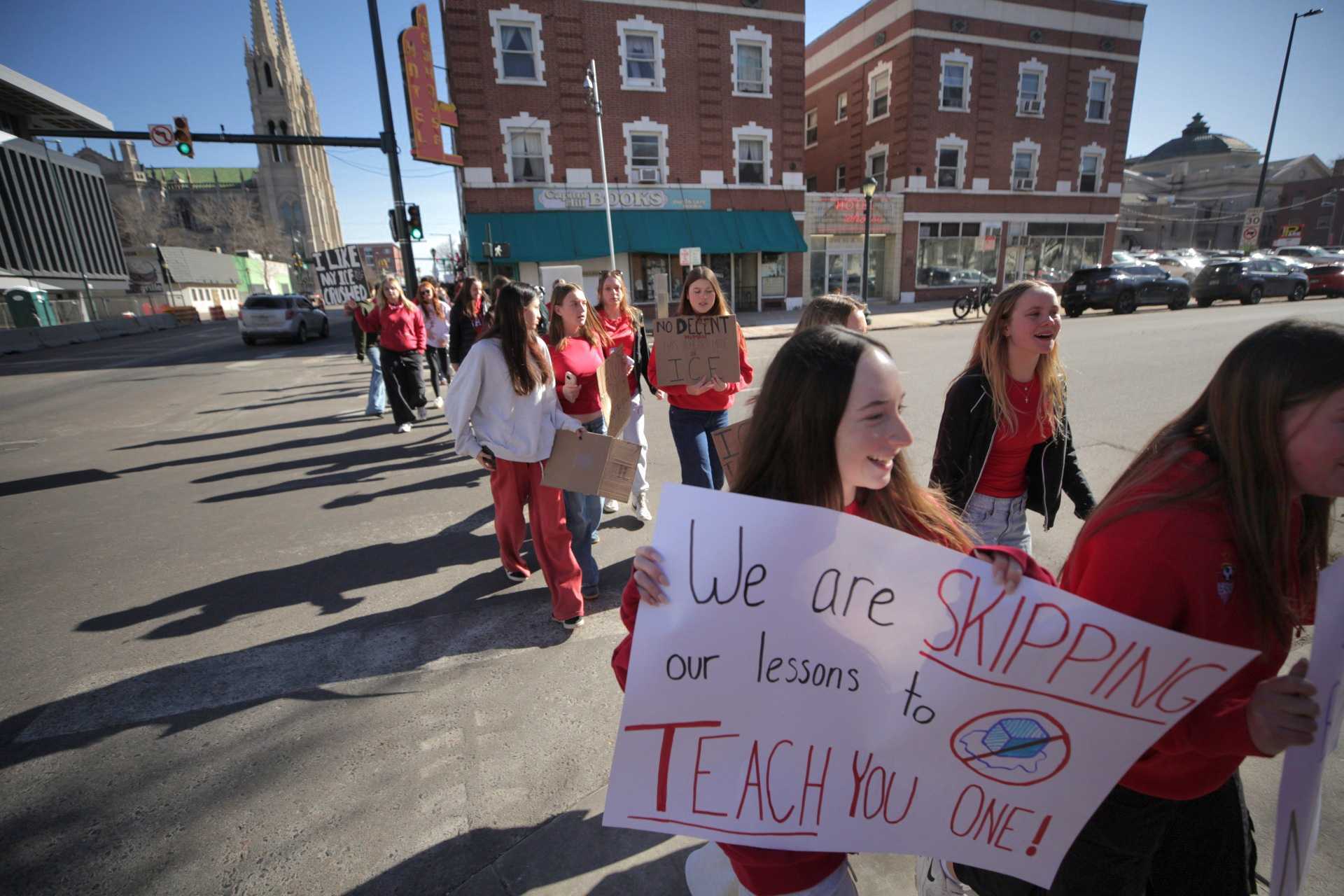Sarah Marie Wright lay in her bed, uncertain where she’d go next. She and the other residents of the SAFER shelter learned on Tuesday that they will be forced to move in just over two weeks.
The SAFER shelter was set up by Mental Health Colorado in a Centennial hotel during the pandemic, when jails were releasing people in droves. The goal was to connect people struggling with mental health and substance use problems to temporary shelter, health care and ultimately housing.
But pandemic-era federal funding had dried up. Philanthropists and government agencies were not able to fill the gap. And the organization, with a slim development team, did not have the resources to notify the public about the financial struggles that led to its closure.
Now, Mental Health Colorado will run out of money for the program in 60 days — and the shelter will be closing in two weeks.
Wright and SAFER’s other current residents don’t know if they’ll be able to find a new place to stay. Their case workers, who will be laid off soon, are scrambling to help.
Staff and residents alike cry together, mired in uncertainty about their futures.
Wright, who suffers from anxiety, depression and other chronic health issues, has wanted to move into a new place for years, hoping for a housing voucher. Recipients are selected in a lottery.
“I've been on waiting lists for housing this whole time,” she said. “And I haven't been a lucky lottery girl.”
She has no family to fall back on. She has no outside help. She worries she won’t have luck in finding another place anytime soon.
What’s next for her?
“I have no idea,” she said.
SAFER is a rare shelter where many past and current residents speak glowingly of their experience.
Over the past three years, Wright has watched a couple of hundred residents come and go – most finding stability.
“It saved my life,” said Phoenix Noiré, who lived there for a year before moving into a place of his own. “It saved my best friend's life, and it saved a lot of people I know’s life. And it would be a real shame if it stopped saving lives.”
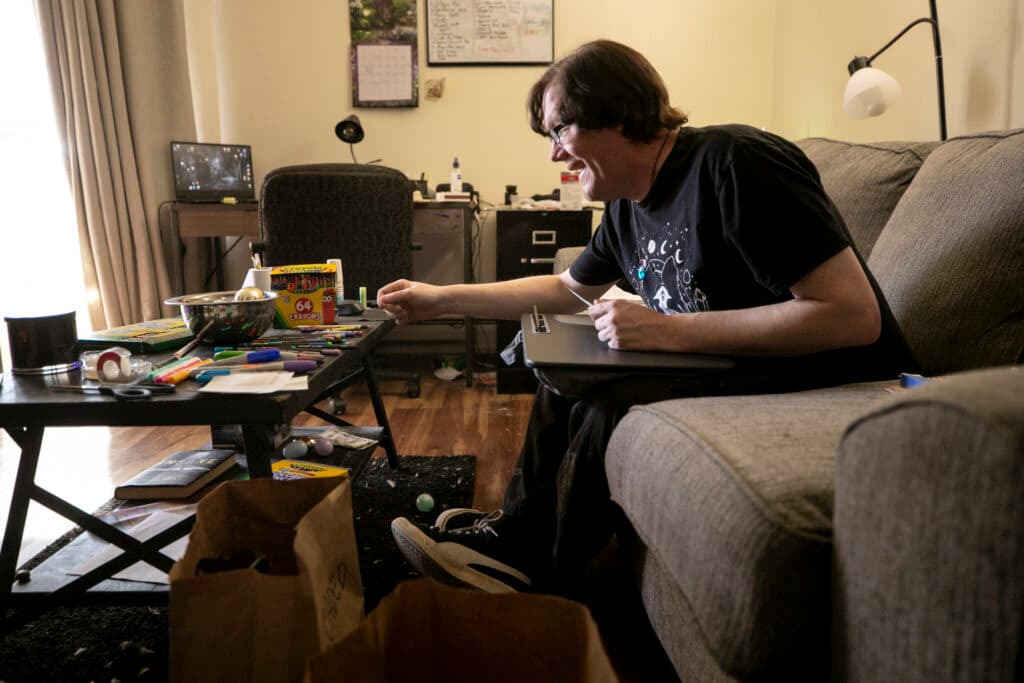
The residents at the SAFER shelter have mental health and substance use challenges that many nonprofits struggle to adequately address. At the shelter, residents go to daily counseling sessions, get rides to doctor and dentist appointments, and have help navigating the convoluted housing voucher system.
“It’s one of the best shelters there is,” Wright said.
The shelter has accommodated as many as 30 people at a time. The organization has around two staff members per resident, ensuring each person has the care they need — an effective but expensive system.
Homelessness or jail are the two options for many of the residents when they come into the program, said Mental Health Colorado’s CEO Vincent Atchity. They cycle from the streets to jails, because the larger society has nowhere for them to get the treatment and housing they need to be stable.
“Some of them have rap sheets that are dozens of pages long, reflecting decades of recurring contact with the justice system, all tied to their health needs,” Atchity said. “But they're peaceable folks, and if they're well supported in this kind of an environment, they can do just fine.
Out of more than 200 residents that SAFER has served over four years, only two have received criminal charges after leaving, Atchity said. That’s a 1 percent rate of return to jail. Compare that to the Colorado Department of Justice’s recidivism rate of 28 percent.
“We have a really good thing here, and it really is so sad,” Wright said. “We're just freaked out. This has been my home for three years now, and it's just being ripped away.”
Mental Health Colorado is proud of its service and has collected data showing the model works. Additionally, the nonprofit is creating a toolkit so other communities can learn lessons from SAFER.
“It's all good — except for the funding scenario,” Atchity said. “We just can’t sustain it.”
The future for programs like SAFER is bleak.
While the cost of sheltering and providing health care and case management is high, it’s nowhere near as expensive as managing the revolving door from the streets to the jails, Atchity said.
“We don't have other pathways extant in our communities to support and address [reentry from jail], and so we default,” Atchity said. “People are either living under bridges or they're incarcerated for some reason or another. We don't create alternative pathways.”
Yet there is little political will for programs like SAFER to continue. All levels of government are slashing budgets — and health and housing are often on the chopping block.
The more than 200 people SAFER served over four years is a “drop in the bucket” of the number of people who need a program like that to thrive, Atchity said. The infrastructure simply does not exist anywhere in the country.
As he sees it, there are people leaving the jails who need health and housing support but do not need a shelter, and others who need more permanent housing with inpatient care. Solving those issues would help reduce crime and suffering and would improve everybody’s quality of life.
“We have not built adequate capacity for that anywhere in the country,” he said. “And the combination of those two infrastructure shortcomings are mass incarceration, homelessness and an epidemic of substance abuse.”
SAFER staff and participants are looking for solutions.
Noiré is scrambling to save the shelter — maybe find last-ditch funding, or another nonprofit that could run it. But he acknowledges that it’s an unlikely possibility.
At the same time, he is helping residents find shelter or housing for when they leave.
Wright, too, is working on a solution. She’s currently running a GoFundMe to raise rent money for residents who are facing homelessness if the staff can’t help them into another program.
So far, one person has donated $50 and another former resident of the shelter $1,000.
“I’m not just doing it for me, because it’s not just me having a problem right now,” she said.
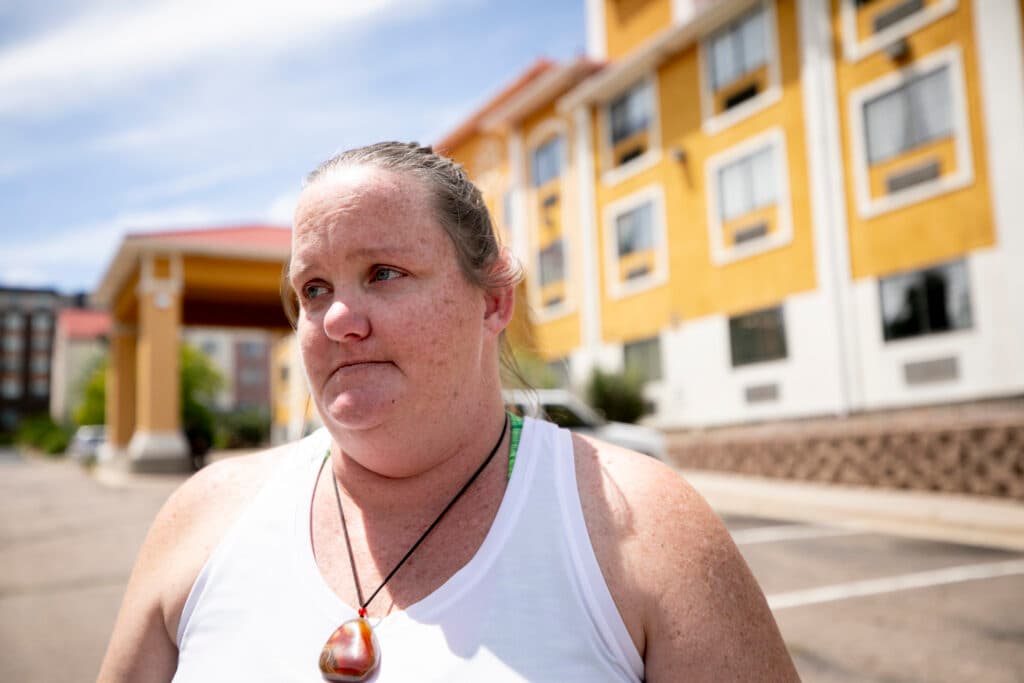
Meanwhile, Atchity said staff are scrambling to get people placed into other programs. Mental Health Colorado is trying to connect soon-to-be laid-off employees with jobs at other agencies, too.
He’s hopeful, but uncertain, that it will work.
The problem of homelessness is far from solved, he said. And there will always be people who need support with shelter, health care, and other services.
“Deciding to do that versus just incarcerating them or letting them die under bridges —that's where we're hung up as a culture,” he said. “We are stuck in a place that doesn't let us advance effectively on that front. Pulling back public spending puts the nail in the coffin of any progress that communities have been making over the course of the past several years.”
Without a shift in the country’s priorities, he said, the cycle from jails to the streets will only get worse.






